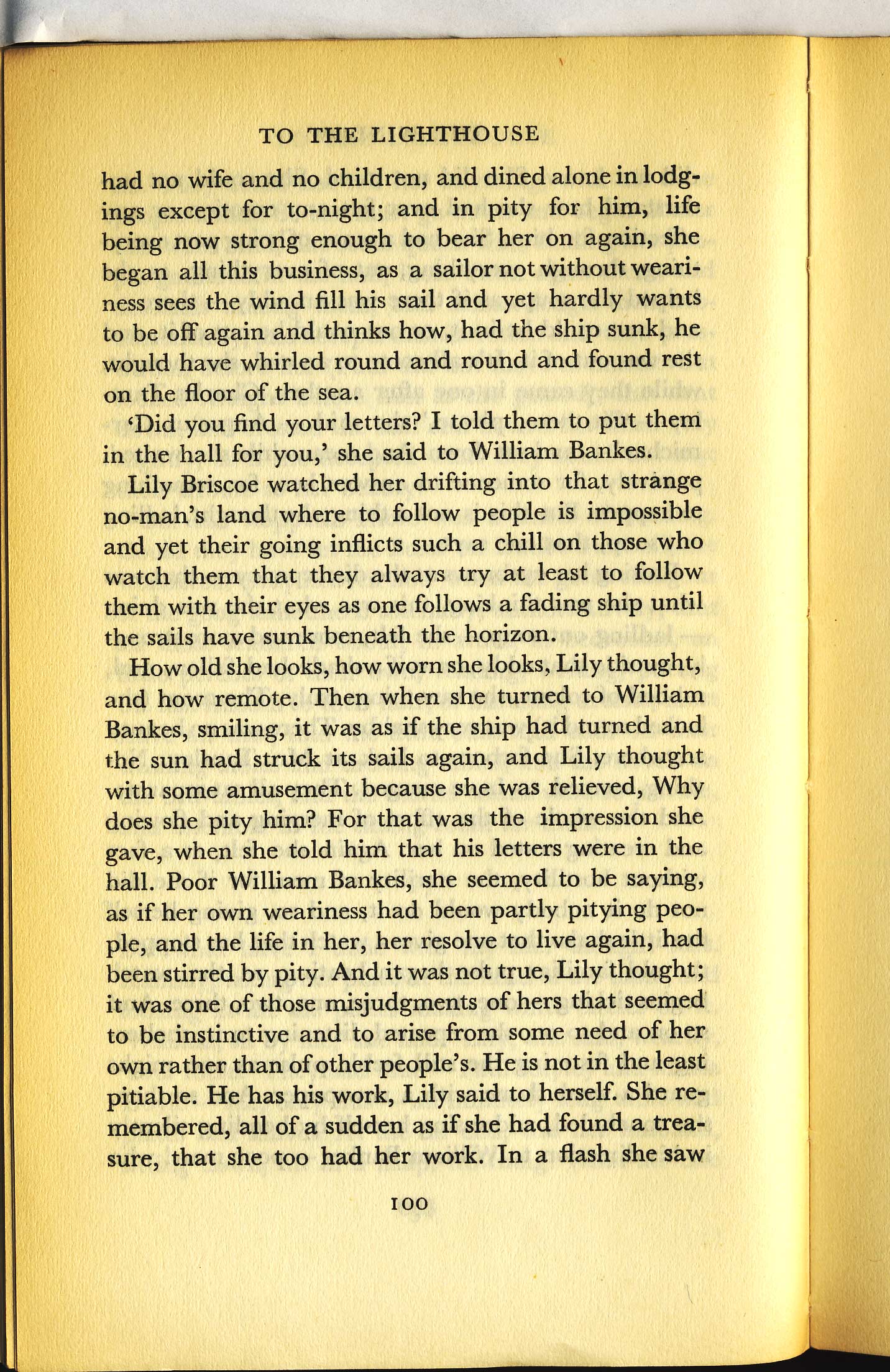
TO THE LIGHTHOUSEhad no wife and no children, and dined alone in lodg-ings except for to-night; and in pity for him, lifebeing now strong enough to bear her on again, shebegan all this business, as a sailor not without weari-ness sees the wind fill his sail and yet hardly wantsto be off again and thinks how, had the ship sunk, hewould have whirled round and round and found reston the floor of the sea.ŌĆśDid you find your letters? I told them to put themin the hall for you,ŌĆÖ she said to William Bankes.Lily Briscoe watched her drifting into that strangeno-manŌĆÖs land where to follow people is impossibleand yet their going inflicts such a chill on those whowatch them that they always try at least to followthem with their eyes as one follows a fading ship untilthe sails have sunk beneath the horizon.How old she looks, how worn she looks, Lily thought,and how remote. Then when she turned to WilliamBankes, smiling, it was as if the ship had turned andthe sun had struck its sails again, and Lily thoughtwith some amusement because she was relieved, Whydoes she pity him? For that was the impression shegave, when she told him that his letters were in thehall. Poor William Bankes, she seemed to be saying,as if her own weariness had been partly pitying peo-ple, and the life in her, her resolve to live again, hadbeen stirred by pity. And it was not true, Lily thought;it was one of those misjudgments of hers that seemedto be instinctive and to arise from some need of herown rather than of other peopleŌĆÖs. He is not in the leastpitiable. He has his work, Lily said to herself. She re-membered, all of a sudden as if she had found a trea-sure, that she too had her work. In a flash she saw100









